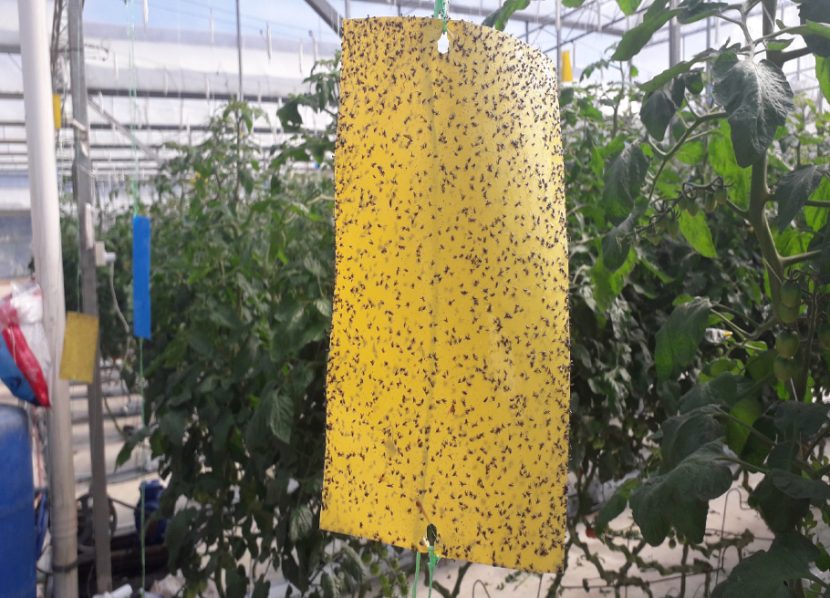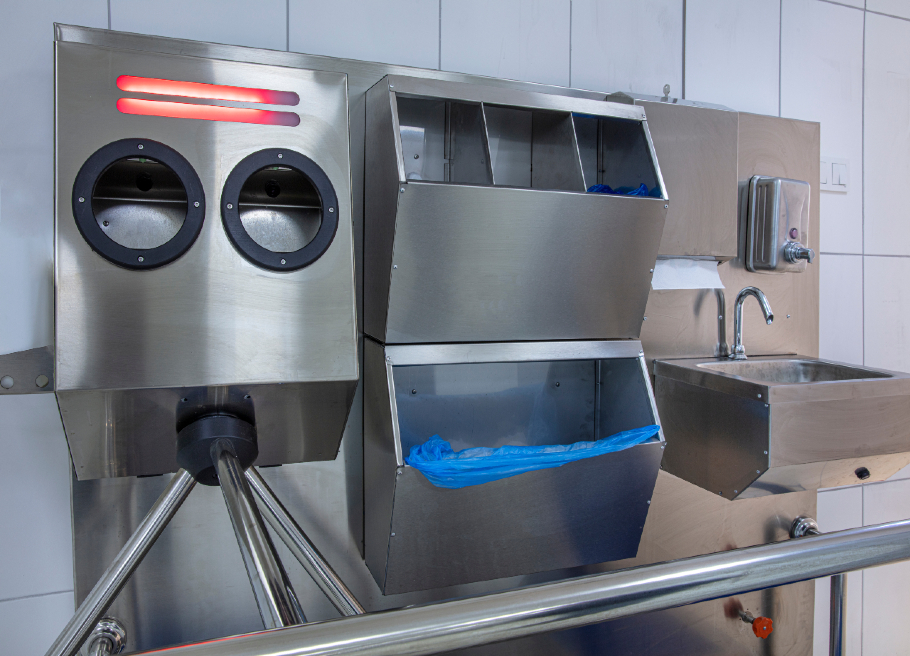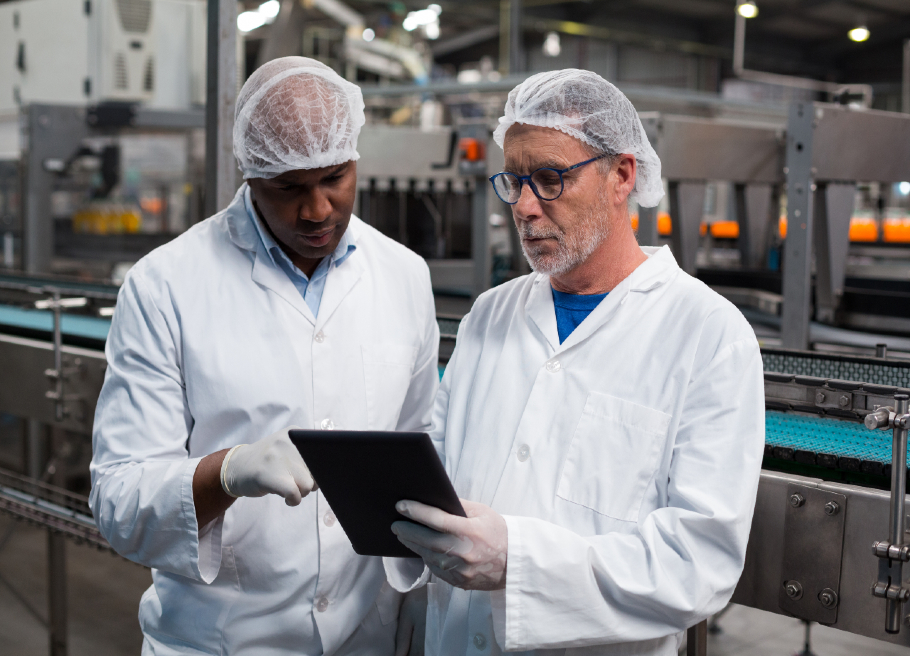How Poor Pest Management Can Affect Your Food Safety
By Violetta Njunina
Pests destroy crops, contaminate food, and spread disease through their fur, droppings, saliva, urine, and bacteria. As such, they are a constant challenge to health, customer safety, and food security.
To minimize risks to food safety and human health, the food safety industry has come up with increasingly creative solutions — including digital solutions — for pest control.
Read on to find out how pests act as a food safety hazard, their impact on the food industry, the illnesses they cause, key elements of pest management, and a digital solution for pest control.
Pests as a Food Safety Hazard
Cockroaches and rats are an unpleasant sight in any kitchen or pantry, but they have far-reaching implications for food safety in the food industry.
By taking care of the problem before it becomes critical, it helps you prevent the damage to your organization’s finances and reputation that could be caused by a large-scale pest outbreak.
Pests act as a significant food safety hazard by:
Transmitting Diseases
Pest urine, droppings, hair, fur, eggs, and dead bodies along with microbes and viruses they can transmit diseases through food. Businesses and organizations in the food industry — such as restaurants, food packaging companies, and canned food companies — store food at a large scale, making the risk of transmitting disease all the more serious.
Damaging Food Packaging
Pests, especially rodents, can damage food packaging. This makes the food not only susceptible to loss, but can also expose it to pathogens. It also lets in air, moisture, dirt, and pollutants from the environment that can spoil or contaminate the food.
Causing Safety Hazards at Food Warehouses
Some pests can cause safety hazards at food warehouses or factories, which can destroy food or reduce its quality. Rodents such as mice and rats can chew through electrical wires and cause fires.
Pests and Their Effects on the Food Industry
In addition to their impact on food safety, pests can have adverse effects on the food industry itself. These include:
Ruining an Organization’s Reputation. Trust in a food product’s safety is an important factor behind buying decisions. About 85% of people trust the safety of branded packaged food products, while only 69% trust unbranded packaged food products. If it becomes known that a business in the food industry is riddled with pests, it could (and definitely will) ruin its reputation.
Leading To Closure of a Business. In February of 2022, 400 Family Dollar stores in the US were temporarily closed due to a rodent infestation in one warehouse. While these stores were only temporarily closed, an ongoing infestation can severely hurt the finances of a business and lead to its closure.
Compromising the Health of Employees. Pests such as cockroaches and rats may not only contaminate food but also work surfaces, putting the health of employees at risk. Some pests such as rodents may also bite employees, compromising their safety and productivity. Such working conditions can increase employee turnover and incur liability costs to the company.
Foodborne Illnesses Caused by Pests
Foodborne illnesses cause approximately 48 million people to fall ill in the United States every year, of which 3000 people die. Pests crawl across sewers, garbage, and other dirty surfaces, picking up microbes and viruses as they go along. These microbes include:
- Salmonella, which causes typhoid fever
- E. coli, which can cause gastroenteritis
- Shigella, which can lead to blood-containing diarrhea
- Listeria, which can be especially dangerous for newborn children
- Hantavirus, which can cause kidney disease and hemorrhagic fever
- Cholera, which can lead to severe diarrhea and life-threatening dehydration
Some of these conditions — such as complicated typhoid fever and cholera — can be life-threatening for consumers, which is why food safety is so important.
Key Pest Management Elements
Considering the many threats pests pose to food safety and the food industry, businesses should implement a robust pest management strategy with the following Integrated Pest Management (IPM) principles:
- Inspecting for pests
- Identifying the pests
- Establishing pest tolerance levels
- Implementing an effective control strategy such as applying pesticides and moving dumpsters away from the building
- Evaluating the effectiveness of the pest control strategy
Digital Solution for Pest Control
Traditional pest control is based on pest management after inspection. However, because it is virtually impossible to perform human inspections round the clock, the possibility of a large-scale pest outbreak always remains.
That is why there is a need to move to digital solutions for pest control.
A digital solution for pest control combines wireless technology with sensor control to constantly monitor and document the appearance of pests. It also performs pest data analysis and reporting, so you can create an effective pest management strategy when writing your HACCP plan.
As a result, a digital solution for pest control helps businesses prevent and proactively manage pest infestations. By taking care of the problem before it becomes critical, it can prevent damage to an organization’s finances and reputation typically caused by a large-scale pest outbreak.
Conclusion
In view of the impacts it has on food safety, finances, and the reputation of businesses, pest control is crucial for the food industry. The key elements of pest management are articulated in the Integrated Pest Management principles, which start with an inspection and end with an evaluation.
To ensure optimal pest control, the IPM principles must be implemented together with an innovative, proactive digital solution.
About the author:
Violetta Njunina is the Head of Sales at FoodDocs and is an experienced restaurant and event manager with a demonstrated history of working in the food & beverages industry.

-
 FeaturedFood SafetyFood ScienceIndustry Standards & RegulationsLaboratory and TestingPackaging & LabellingPublic HealthSupply ChainSupply Chain Management
Heavy Metals in Baby Food: Regulating Raw Ingredients to Ensure Food Safety
FeaturedFood SafetyFood ScienceIndustry Standards & RegulationsLaboratory and TestingPackaging & LabellingPublic HealthSupply ChainSupply Chain Management
Heavy Metals in Baby Food: Regulating Raw Ingredients to Ensure Food Safety
-
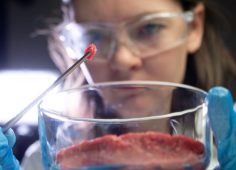 ConsultingFeaturedFood SafetyFood Safety ComplianceIndustry Standards & RegulationsLaboratory and TestingPublic HealthSupply Chain
The Path to Sustainable Food: EU Regulations and Cell Cultured Meat
ConsultingFeaturedFood SafetyFood Safety ComplianceIndustry Standards & RegulationsLaboratory and TestingPublic HealthSupply Chain
The Path to Sustainable Food: EU Regulations and Cell Cultured Meat
-
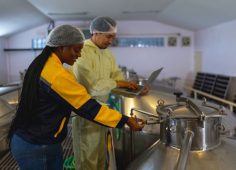 Audit and CertificationsFeaturedFood SafetyFood Safety ComplianceIndustry Standards & RegulationsSupply Chain Management
Enhancing Global Food Safety Compliance Through ISO 22000
Audit and CertificationsFeaturedFood SafetyFood Safety ComplianceIndustry Standards & RegulationsSupply Chain Management
Enhancing Global Food Safety Compliance Through ISO 22000
-
 Audit and CertificationsFeaturedFood SafetySupply ChainSupply Chain Management
Safeguarding Our Future: Where Food Safety and Sustainability Meet
Audit and CertificationsFeaturedFood SafetySupply ChainSupply Chain Management
Safeguarding Our Future: Where Food Safety and Sustainability Meet
-
 FeaturedFood SafetyPackagingPackaging & Labelling
Preserving Food Quality: The Critical Role of Packaging in Safeguarding Food Safety and Sustainability
FeaturedFood SafetyPackagingPackaging & Labelling
Preserving Food Quality: The Critical Role of Packaging in Safeguarding Food Safety and Sustainability
-
 FeaturedFood SafetyPublic HealthSupply Chain
Mitigating Risks to Food Safety from Climate Change
FeaturedFood SafetyPublic HealthSupply Chain
Mitigating Risks to Food Safety from Climate Change

